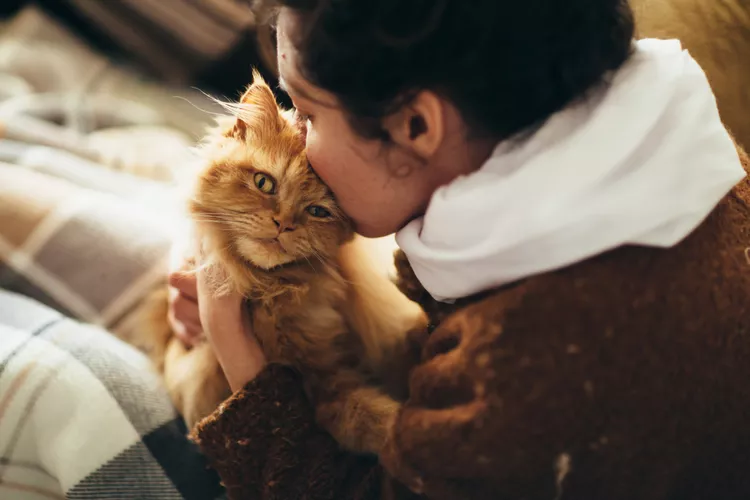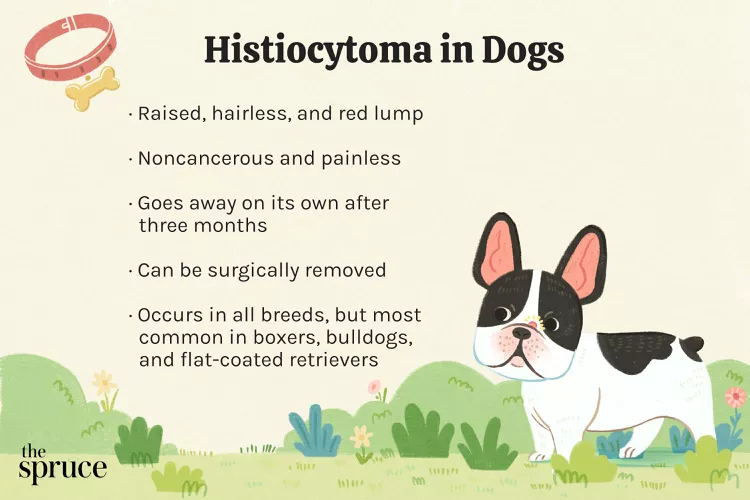
The goldendoodle is a crossbreed between a golden retriever and a poodle originally developed in the late 1960s to serve as guide dogs for those allergic to dogs. Goldendoodles vary in size because of the poodle's size variations. The breed typically has curly, hypoallergenic hair and hardly sheds thanks to its non-shedding poodle ancestors. Goldendoodles are highly intelligent, athletic, and lovable dogs that are great with kids and other pets.
Learn more about the beloved goldendoodle to decide if it's the right dog for you and your family.
The goldendoodle is known for their affectionate personality and willingness to please, making this a popular choice for families. Due to their gentle temperament and high trainability, they have been used as pets, agility dogs, guide dogs, therapy dogs, diabetic dogs, and search and rescue dogs.
Goldendoodles were first bred in 1969 to be guide dogs, but the breed gained popularity among breeders during the 1990s. This designer mix was bred to combine the poodle's non-shedding coat with the golden retriever's desirable temperament.
The idea for the crossbreed was inspired by the successful breeding of the Labradoodle, a poodle and Labrador retriever hybrid. As one of the most popular domestic dog breeds in the United States, the golden retriever was an obvious choice for crossbreeding with the delightfully hypoallergenic poodle.
The first three dogs to earn the American Kennel Club Obedience Champion title after its introduction in 1977 were golden retrievers, which proves their loyalty and ease of trainability poodles were originally bred as retrievers and water dogs, and both are among the smartest dog breeds. These genes pass on to the goldendoodle, so owners can expect an athletic, intelligent, and obedient companion.
Though they're not high-maintenance dogs, goldendoodles require adequate exercise, grooming, and training. They make great house pets but enjoy plenty of time to play and explore outdoors. A fenced yard is ideal for goldendoodles to romp around, but they shouldn’t be kept there all day. This social breed thrives with their family and friends inside.
With average to above-average energy levels, goldendoodles require daily exercise and love to go for walks, runs, hikes, and swims. Their playful nature and retriever genes make them great fetch partners, too. Owners should aim for at least 30 minutes of exercise each day including walking, running, swimming, and tackling agility courses.
The goldendoodle's coat varies, but is often somewhere between the two parent breeds when it comes to grooming. Though goldendoodles don’t shed excessively, they still need to be brushed regularly to remove dead hair and prevent matting. To keep their skin and coat healthy, they need a moisturizing bath every few months. Depending on the dog, a goldendoodle may grow long hair over the eyes or between the toes, so appropriate trimming is required.
Goldendoodles are obedient, athletic, and smart so they take well to training and are eager to please. Agility comes to them naturally and courses are a great place for goldendoodles to burn energy and create a strong bond between owner and companion. They respond best to positive, reward-based training and will gladly show off their tricks for a tasty treat.
Goldendoodles tend to have excellent health if bred responsibly. They may inherit health problems associated with poodles and golden retrievers, but crossbreeding may reduce the chances of some health problems due to their genetic diversity. In your puppy search, it’s important to find a reputable breeder who is committed to breeding healthy dogs.
Because goldendoodles are active, they need a high-quality diet to keep them happy, strong, and energetic. Look for dog foods high in protein and healthy fats with meat as the first ingredient. They should be fed measured meals twice a day rather than free-feeding, which can cause weight gain.
Check with your local animal shelter or rescue group to see if there's a goldendoodle available for your home. The IDOG Rescue, Inc., group is dedicated to finding new homes for all types of doodles, including Goldendoodles, that need a loving family. Big Fluffy Dog Rescue also includes goldendoodles in the type of dogs that it rescues.
If you're interested in buying a goldendoodle puppy, find a reputable and responsible breeder and watch for signs of a bad or backyard breeder. The Goldendoodle Association of North America provides a list of breeders on its website.
The goldendoodle is an intelligent, loyal, and affectionate dog that thrives in active homes, especially those with kids. They're fairly easy to train and have relatively low-maintenance care.
Like goldendoodles? You might also enjoy these breeds:
Learn even more about our favorite furry friends by checking out additional dog breed profiles.
No. Goldendoodles are popular dogs, but they are not rare. The only potentially rare goldendoodles are ones with all black or merle coats, thanks to the intricacies of genetics.
Goldendoodle coats come in a variety of colors and markings. Merle refers to a variegated pattern on a goldendoodle's coat. (Note that the merle gene may cause blindness and deafness.) Other names for patterns include parti (half white with patches), phantom (distinct markings on chest and other areas), brindle (stripes), and abstract (solid color with white markings).
The word "furnishings" seems like an odd choice of a word to describe facial hair features for dogs, but that's just what it means. The characteristic furnishings typically found on goldendoodles include longer than usual eyebrows, mustaches, and beards that make the dogs look so adorably scruffy.
If you buy a goldendoodle from a breeder, be prepared to spend on average between $2,000 to $3,000 or even more for a mini or a merle goldendoodle. This dog is expensive because it takes breeders a lot of genetic engineering to produce these beautiful dogs.

Cute Pictures & Facts About Calico Cats & Kittens
Learn fascinating facts about calico cats, including photos, the genetics behind this color combination, and common folklore and traditions.
How to Prevent Cat Separation Anxiety During Vacations
Discover why cats develop litter box problems and cat behavior problems when you go on vacation and what you can do about it to help them.
Cat Behavior Changes That Might Mean Something's Wrong
Cats' behavioral changes may indicate problems—or they may mean nothing at all. Explore causes of odd behavior and what to do about them.
Lhasa Apso: Dog Breed Characteristics & Care
The Lhasa apso is an ancient breed from Tibet that was bred to be a watchdog. Learn about its history, health, exercise needs, and more.
Reasons Why Dogs Run Away and How to Stop It
Dogs can escape, especially if they’re bored and not properly contained. Here are some techniques for stopping your dog from running away.
Can Dogs Get Depression? How to Help Your Sad Dog
Can dogs get depression? Learn about the signs of depression in dogs and find out how to help your sad dog.
How to Stop Aggression in Dogs
Dog aggression can be a serious behavior issue for pet owners. Learn how to stop aggression in dogs before someone gets hurt.
How to Stop Your Dog From Growling
A growling dog can soon become even more aggressive. Reduce the noise and potential for a dangerous situation with some of these techniques.
Why Do Dogs Dig Holes? How to Stop Your Dog from Relandscaping Your Yard
Dogs have been digging holes for centuries and for many reasons. Whether they’re bored or want to cool off in the dirt, here are the top reasons why dogs dig holes.
Dog Treat Varieties
Learn about the different types of dog treats on the market and decide which are best for your dog.
Can Dogs Eat Asparagus?
Dogs can eat asparagus, provided the vegetable is cooked plain and cut up for them. Seasonings, salt, and butter make it unhealthy for dogs.
Histiocytomas in Dogs
A histiocytoma is a type of benign (non-cancerous) skin lump that usually affects young dogs. Learn the causes, treatment, and prevention.
Why Is My Dog’s Eye Swollen?
If your dog's eye is swollen, she may need veterinary attention. The inflammation could be caused by allergies, an injury, or even a tumor.
Common Bugs and Parasites Found on and Inside Dogs
Learn about common types of parasites in dogs. Find out how to treat and prevent parasites to keep your dog, your family, and yourself safe.
Exploring the Different Types of Pet-Friendly Beaches
Are you looking for pet-friendly beaches? Learn about the different types of pet-friendly beaches, their locations, and tips for visiting them with your pet.
10 Obscure, Little-known Canine Facts in Honor of National Dog Day
With National Dog Day upon us, it's time to celebrate everything about our favorite pets—even the weirder stuff. Here are 10 obscure facts about dogs you probably didn't know.
Kitten Development From 3 to 6 Months Old
Kittens grow and change a lot during their first year. Find out what happens between the ages of three months and six months old.
95 Siamese Cat Names
Our list of Siamese cat names has diverse and fun options to help you choose the ideal moniker for your elegant and lovable feline companion.
What to Buy for Your New Cat: A List of Essentials
Before you bring your new cat or kitten home, there are a number of things to collect or buy so your cat will feel welcomed like a family member.
The 6 Best Cat Nail Clippers of 2024 for a Safe Trim
Clipping your cat's nails can save your furniture and keep your kitty comfortable. We asked veterinarians for their cat nail clipper recommendations.